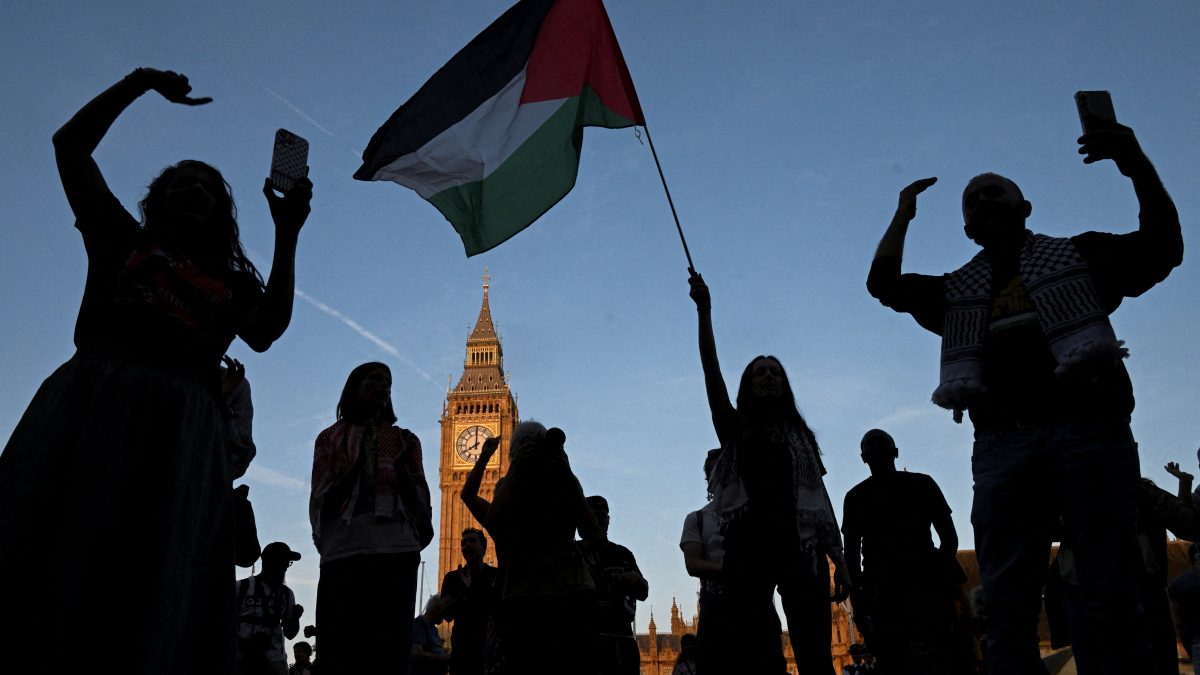Politics
UN Approves Palestinian Address as Allies Recognize Statehood

The United Nations General Assembly approved a historic resolution on September 19, 2025, allowing Palestinian President Mahmoud Abbas to address world leaders at their upcoming annual gathering in New York. The resolution received 145 votes in favor, while only five countries opposed it and six abstained. Abbas will deliver his speech via video link as the United States has denied him a visa.
In a significant move, four key US allies—the United Kingdom, Canada, Australia, and Portugal—recognized the independent State of Palestine on September 21, 2025. France is expected to follow suit on September 22, ahead of a summit convened by France and Saudi Arabia that aims to further solidify international support for Palestinian statehood.
The ongoing Israel-Palestine conflict traces back to the late 19th century, intertwined with the rise of Zionism and Arab nationalism. Tensions escalated significantly during the British Mandate from 1917 to 1948, with the Balfour Declaration igniting civil unrest and violence. The situation deteriorated further when the British withdrew, leading to the UN Partition Plan in 1947, which proposed dividing Palestine into separate Jewish and Arab states.
Despite acceptance by Jewish leaders, the plan was rejected by Arab representatives, and the subsequent declaration of Israel’s independence on May 14, 1948, led to the first Arab-Israeli war. This conflict resulted in the displacement of over 800,000 Palestinians, a tragedy known to them as the Nakba or “Catastrophe.”
The two-state theory emerged from these events, advocating for the establishment of both Israel and Palestine as sovereign nations. This framework has garnered international endorsement, emphasizing the need for self-determination and long-term peace. Yet, despite multiple wars and numerous peace efforts since, a resolution remains elusive.
The 1967 Six-Day War further complicated matters, with Israel seizing control of territories including the West Bank and Gaza Strip. This expansion made the prospect of a Palestinian state increasingly challenging, particularly as Israel continues to build settlements in occupied areas, which are deemed illegal under international law.
The recent wave of recognitions by Western allies reflects a growing frustration over Israel’s military actions in Gaza, which have resulted in the deaths of over 65,200 Palestinians, primarily women and children, and have left millions in dire humanitarian conditions. Supporters of Palestinian recognition hope this shift will pressure Israel to halt its military operations and recommit to a genuine peace process.
On September 12, 2025, the UN General Assembly passed the “New York Declaration,” reaffirming support for a two-state solution with a vote of 142 in favor and 10 against. However, US officials have expressed strong opposition to the resolution. Morgan Ortagus, a US Mission Counsellor, stated that the resolution represents a “gift to Hamas,” illustrating the deepening divide between the US and its allies on this issue.
The situation on the ground remains dire. In East Jerusalem, claimed by both Israelis and Palestinians as their capital, tensions are high. The West Bank, home to approximately 3 million Palestinians, is under partial Palestinian Authority control, yet continues to see an influx of Israeli settlers. Meanwhile, the Gaza Strip faces catastrophic humanitarian crises, exacerbated by ongoing conflict.
As the international community grapples with the question of Palestinian statehood, it is important to consider the criteria defined by the Montevideo Convention of 1933. A legitimate state must have a defined territory, a permanent population, a functioning government, and the capacity to engage in relations with other states.
Palestine meets some of these criteria: it claims defined territory based on pre-1967 borders, with a population of approximately 15.2 million globally. The Palestinian Authority governs parts of the West Bank, while Hamas controls Gaza. Despite the Palestinian Liberation Organization’s declaration of independence in 1988, the path to statehood remains fraught with challenges.
Despite the surge in recognitions, the fundamental question remains: Will Palestine ever achieve full statehood? Current geopolitical dynamics suggest that significant changes would be necessary to alter the status quo. As Israel maintains its opposition and the US continues its vetoes against pro-Palestinian resolutions, the future remains uncertain. Without a drastic shift, Palestine risks remaining an unfulfilled aspiration rather than a recognized state, lost in a complex and enduring political quagmire.
-

 World5 months ago
World5 months agoSBI Announces QIP Floor Price at ₹811.05 Per Share
-

 Lifestyle5 months ago
Lifestyle5 months agoCept Unveils ₹3.1 Crore Urban Mobility Plan for Sustainable Growth
-

 Science4 months ago
Science4 months agoNew Blood Group Discovered in South Indian Woman at Rotary Centre
-

 World5 months ago
World5 months agoTorrential Rains Cause Flash Flooding in New York and New Jersey
-

 Top Stories5 months ago
Top Stories5 months agoKonkani Cultural Organisation to Host Pearl Jubilee in Abu Dhabi
-

 Sports4 months ago
Sports4 months agoBroad Advocates for Bowling Change Ahead of Final Test Against India
-

 Science5 months ago
Science5 months agoNothing Headphone 1 Review: A Bold Contender in Audio Design
-

 Top Stories5 months ago
Top Stories5 months agoAir India Crash Investigation Highlights Boeing Fuel Switch Concerns
-

 Business5 months ago
Business5 months agoIndian Stock Market Rebounds: Sensex and Nifty Rise After Four-Day Decline
-

 Sports4 months ago
Sports4 months agoCristian Totti Retires at 19: Pressure of Fame Takes Toll
-

 Politics5 months ago
Politics5 months agoAbandoned Doberman Finds New Home After Journey to Prague
-

 Top Stories5 months ago
Top Stories5 months agoPatna Bank Manager Abhishek Varun Found Dead in Well









